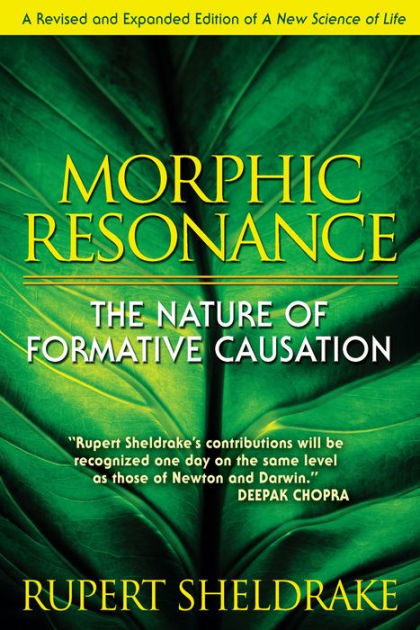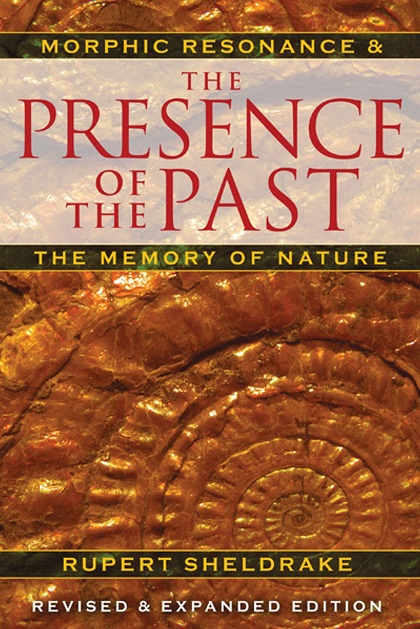|
Word Gems
exploring self-realization, sacred personhood, and full humanity
Rupert Sheldrake
and
Richard Dawkins
return to "Afterlife" contents page
From Rupert Sheldrake’s website:
Richard Dawkins comes to call
A crusading atheist and author of The God Delusion, Richard Dawkins is Professor of the Public Understanding of Science at Oxford University. He is a Fellow of CSI (The Committee for Skeptical Inquiry, formerly CSICOP) and a strong supporter of James Randi. His earlier books were on evolutionary biology, the best known being The Selfish Gene. In 2007, he visited Rupert to interview him for his TV series Enemies of Reason:
Richard Dawkins is a man with a mission – the eradication of religion and superstition, and their total replacement with science and reason. Channel 4 TV has repeatedly provided him with a pulpit. His two-part polemic in August 2007, called Enemies of Reason, was a sequel to his 2006 diatribe against religion, The Root of All Evil?
Soon before Enemies of Reason was filmed, the production company, IWC Media, told me that Richard Dawkins wanted to visit me to discuss my research on unexplained abilities of people and animals. I was reluctant to take part, but the company’s representative assured me that “this documentary, at Channel 4’s insistence, will be an entirely more balanced affair than The Root of All Evil was.” She added, “We are very keen for it to be a discussion between two scientists, about scientific modes of enquiry”. So I agreed and we fixed a date. I was still not sure what to expect. Was Richard Dawkins going to be dogmatic, with a mental firewall that blocked out any evidence that went against his beliefs? Or would he be open-minded, and fun to talk to?
The Director asked us to stand facing each other; we were filmed with a hand-held camera. Richard began by saying that he thought we probably agreed about many things, “But what worries me about you is that you are prepared to believe almost anything. Science should be based on the minimum number of beliefs.”
I agreed that we had a lot in common, “But what worries me about you is that you come across as dogmatic, giving people a bad impression of science.”
He then said that in a romantic spirit he himself would like to believe in telepathy, but there just wasn’t any evidence for it. He dismissed all research on the subject out of hand. He compared the lack of acceptance of telepathy by scientists such as himself with the way in which the echo-location system had been discovered in bats, followed by its rapid acceptance within the scientific community in the 1940s. In fact, as I later discovered, Lazzaro Spallanzani had shown in 1793 that bats rely on hearing to find their way around, but sceptical opponents dismissed his experiments as flawed, and helped set back research for well over a century. However, Richard recognized that telepathy posed a more radical challenge than echo-location. He said that if it really occurred, it would “turn the laws of physics upside down,” and added, “Extraordinary claims require extraordinary evidence.”
Editor's note: This is an utterly bogus claim. "Extraordinary" to whom? Materialists would like to invent new rules of evidence when it comes to areas that challenge their world paradigm. Do you see how the game is played? When bone fide evidence is produced, all they have to say is, "It's not good enough," because “extraordinary claims require extraordinary evidence." And then they'll summarily dismiss it, because the evidence will never be good enough for them. See my article on the "Rules Of Clear Thinking."
“This depends on what you regard as extraordinary”, I replied. “Most people say they have experienced telepathy, especially in connection with telephone calls. In that sense, telepathy is ordinary. The claim that most people are deluded about their own experience is extraordinary. Where is the extraordinary evidence for that?”
He produced no evidence at all, apart from generic arguments about the fallibility of human judgment. He assumed that people want to believe in “the paranormal” because of wishful thinking.
We then agreed that controlled experiments were necessary. I said that this was why I had actually been doing such experiments, including tests to find out if people really could tell who was calling them on the telephone when the caller was selected at random. The results were far above the chance level.
The previous week I had sent Richard copies of some of my papers, published in peer-reviewed journals, so that he could look at the data.
Richard seemed uneasy and said, “I don’t want to discuss evidence”. “Why not?” I asked. “There isn’t time. It’s too complicated. And that’s not what this programme is about.” The camera stopped.
The Director, Russell Barnes, confirmed that he too was not interested in evidence. The film he was making was another Dawkins polemic.
I said to Russell, “If you’re treating telepathy as an irrational belief, surely evidence about whether it exists or not is essential for the discussion. If telepathy occurs, it’s not irrational to believe in it. I thought that’s what we were going to talk about. I made it clear from the outset that I wasn’t interested in taking part in another low grade debunking exercise.”
Richard said, “It’s not a low grade debunking exercise; it’s a high grade debunking exercise.”
In that case, I replied, there had been a serious misunderstanding, because I had been led to believe that this was to be a balanced scientific discussion about evidence. Russell Barnes asked to see the emails I had received from his assistant. He read them with obvious dismay, and said the assurances she had given me were wrong. The team packed up and left.
Richard Dawkins has long proclaimed his conviction that “The paranormal is bunk. Those who try to sell it to us are fakes and charlatans”. Enemies of Reason was intended to popularize this belief. But does his crusade really promote “the public understanding of science,” of which he is the professor at Oxford? Should science be a vehicle of prejudice, a kind of fundamentalist belief-system? Or should it be a method of enquiry into the unknown?
http://www.sheldrake.org/D&C/controversies/Dawkins.html
Bio: Rupert Sheldrake, Ph.D.
Rupert Sheldrake is a biologist and author of more than 80 scientific papers and ten books. A former Research Fellow of the Royal Society, he studied natural sciences at Cambridge University, where he was a Scholar of Clare College, took a double first class honours degree and was awarded the University Botany Prize. He then studied philosophy and history of science at Harvard University, where he was a Frank Knox Fellow, before returning to Cambridge, where he took a Ph.D. in biochemistry. He was a Fellow of Clare College, Cambridge, where he was Director of Studies in biochemistry and cell biology. As the Rosenheim Research Fellow of the Royal Society, he carried out research on the development of plants and the ageing of cells in the Department of Biochemistry at Cambridge University.
While at Cambridge, together with Philip Rubery, he discovered the mechanism of polar auxin transport, the process by which the plant hormone auxin is carried from the shoots towards the roots.
From 1968 to 1969, based in the Botany Department of the University of Malaya, Kuala Lumpur, he studied rain forest plants. From 1974 to 1985 he was Principal Plant Physiologist and Consultant Physiologist at the International Crops Research Institute for the Semi-Arid Tropics (ICRISAT) in Hyderabad, India, where he helped develop new cropping systems now widely used by farmers. While in India, he also lived for a year and a half at the ashram of Fr Bede Griffiths in Tamil Nadu, where he wrote his first book, A New Science of Life.
He is the current Perrott-Warrick Scholar and Director of the Perrott-Warrick Project. He is also a Fellow of the Institute of Noetic Sciences, near San Francisco, and a Visiting Professor and Academic Director of the Holistic Thinking Program at the Graduate Institute in Connecticut. He lives in London with his wife Jill Purce www.healingvoice.com and two sons.
 |
 |
|

